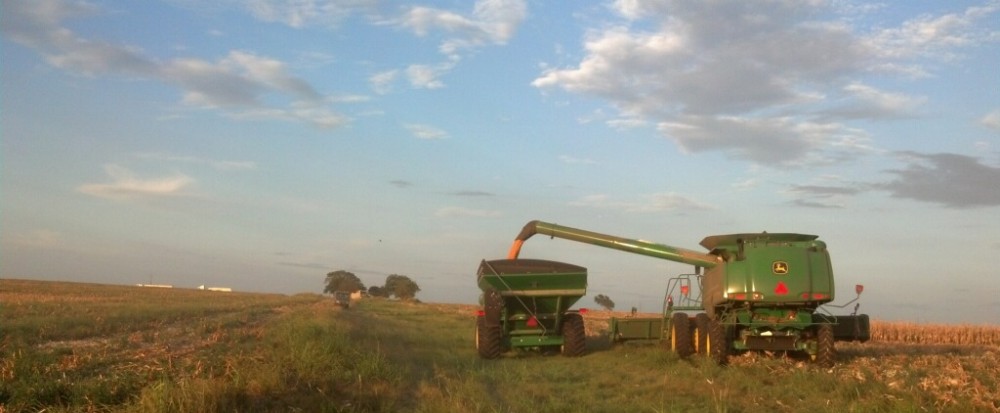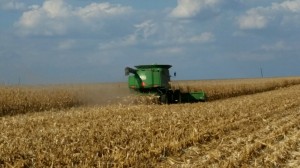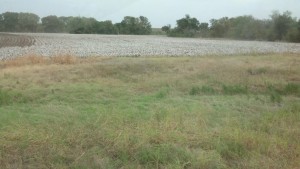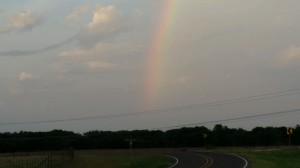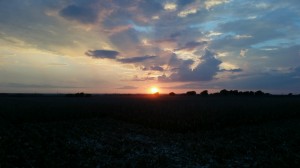Garlic is everywhere.
In the yard in Houston, Texas, small white flowers sprouted in the spring. “Wild garlic,” my neighbor said. I pulled some up to find a tiny onionish bulb. Not much garlic there. For the newly planted flowerbeds in front, I visited the nursery and purchased tall purple flowers with grassy leaves. “Ornamental garlic,” my neighbor said. I bent to spell the blooms. Definitely garlic there. Out back in Dallas, tall shoots shot up sprouting clusters of little white flowers that broke open to scatter bulb-like seeds. “Garden garlic,” my neighbor said. “Some grandma had a garden here before they built your house.” I pulled up plump garlic bulbs packed with individual cloves. Definitely garlic here.
It seems garlic is everywhere.
The relative of the onion has been around a great while.
When the pyramids of Egypt were built some 5,000 years ago, garlic was being grown outside and used inside. Just ask the archaeologists. Hippocrates, the Greek physician and Father of Western Medicine, was writing scripts for garlic 2,500 years ago. Just ask your doctor. Garlic was given to athletes racing in the first Olympic games. Just ask a trainer. Spreading around the globe, the hardy little plant developed a devoted following. Just ask your neighbor. Garlic was used to ward off bad stuff and encourage good stuff. Ask your neighbor again. It was and is a common remedy for everything from the common cold to snake bite. Ask your doctor again. And, always, it was and is a wonderful flavor enhancer for foods and a most friendly accompanist to cooks and chefs plying their creative trade the world round. Just go to dinner anywhere.
The world has an insatiable appetite for garlic.
To which, the farmers have responded.
China leads the way as the #1 producer of the world’s garlic. Next in line, piling their market wagons with the tasty, tantalizing and tempting little relative of the onion, are: India, South Korea, Egypt, Russia, Burma, Ethiopia, the United States, Bangladesh and Ukraine. As you can see, the varied and vital diversity of the lands represented evidence the wide and welcome acceptance of garlic.
Chemically, there are sulfur compounds in the garlic cloves, which, when crushed (and everyone knows you must crush the garlic to release its flavors), liberate to the surrounding environs compounds of a startlingly pungent and persistently odiferous aspect, which is much desired for the associated culinary manifestations, but has the bothersome habit of traveling through the body to exit the pores of the skin and to be exhaled with the breath from the lungs. More directly stated, garlic can be evident to a somewhat unpleasant extent in the diner’s sweat and breath the following day. A small price, most would say, but one to be aware of, especially if you have a scheduled meeting with the head of company the next day. In counterpoint, it can be noted that the wafting later-effects of garlic consumption are reported to dissuade mosquitoes from landing upon and biting the skin of the consumer. This is one garlic testament I have personally heard and observed in discussions with garlic consumpters.
Coincidence is an amazing thing, tempting one to think things may not be as coincidental as they appear.
After deciding to write a testimony to garlic, I stumbled across this statement: “Much of the garlic consumption in the United States is centered in Gilroy, California, which calls itself the ‘garlic capital of the world.’” Opening another window on the computer, I found the route to a wedding in California. Clicking on the destination map, I saw the city of Gilroy on the road from the airport to the wedding. We will be driving through the garlic capitol of the world.
Coincidence?
I think not.
Confirmation?
Absolutely.
Where there is garlic in plenty, good restaurants will follow in turn.
Spread the table, prepare the feast, and open the doors.
And, please, oh please, don’t spare the garlic.
Bon appetit.
Grandpa Jim
